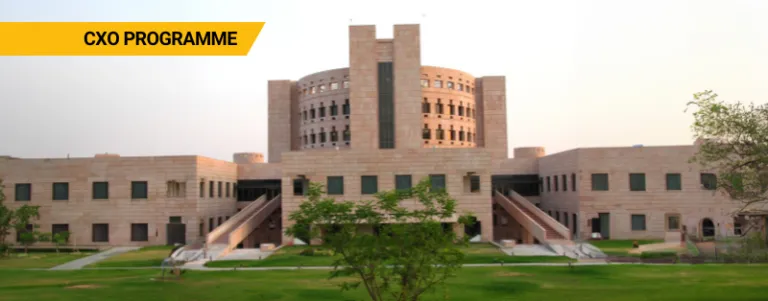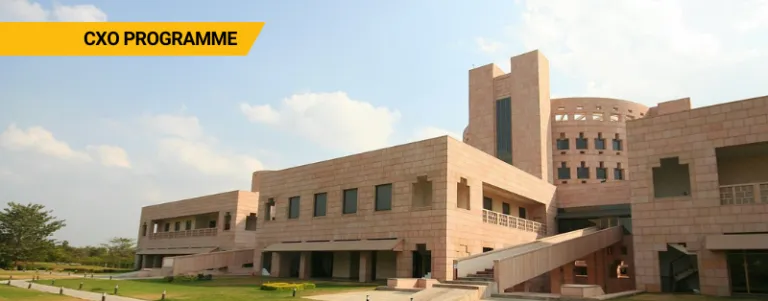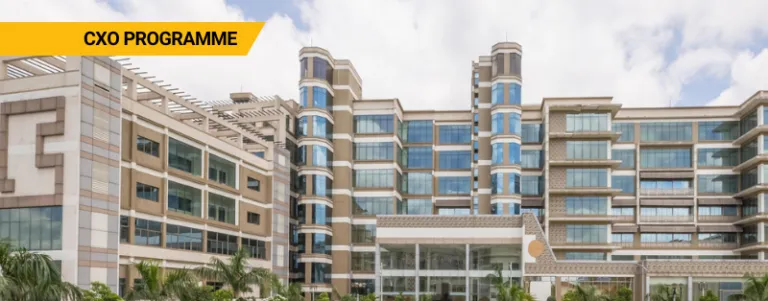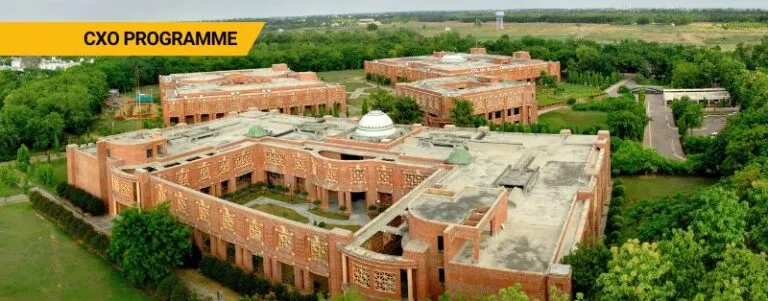How Adaptive Leadership Can Help Indian Leaders Drive Success

- What is Adaptive Leadership, and Why is it Important in India?
- How Does Adaptive Leadership Differ From Traditional Leadership Styles in the Indian Context?
- What are the Key Principles of Adaptive Leadership That Can be Applied in India?
- How Can Adaptive Leadership Help Organizations in India Navigate and Thrive in an Ever-Changing Environment?
- What are Some Real-Life Examples of Adaptive Leadership in Successful Indian Businesses?
- Positively Impact Innovation and Problem-Solving in Your Organization by Taking Emeritus’ Leadership Courses
Businesses experience perpetual transformation and upheaval in the vast and diverse landscape of the Indian economy. As the country evolves rapidly, organizations require leaders who can confidently navigate uncharted waters and finesse. Only such leaders can inspire their teams to excel amidst ambiguity and change. Enter adaptive leadership —a revolutionary approach that has become the cornerstone of success for businesses in this dynamic and ever-evolving Indian market.
In this article, you’ll learn:
- What is adaptive leadership, and why is it important in India?
- How does adaptive leadership differ from traditional leadership styles in the Indian context?
- What are the key principles of adaptive leadership that can be applied in India?
- How can adaptive leadership help organizations in India navigate and thrive in an ever-changing environment?
- What are some real-life examples of adaptive leadership in successful Indian businesses?
What is Adaptive Leadership, and Why is it Important in India?

Adaptive leadership is a term coined by Harvard professors Dr. Ron Heifetz and Marty Linsky. It is a practical framework that emphasizes the ability to adapt to change as the key cornerstone of effective leadership. Additionally, it enables leaders and organizations to swiftly adjust their practices, strategies, and policies to meet the demands of constant change.
The adaptive leadership style takes a flexible approach compared to other leadership strategies. This helps organizations maintain agility and adaptability, enabling them to thrive in dynamic landscapes. It facilitates smooth transitions in achieving company’s goals while aligning with the ever-changing dynamics of the market. This framework allows leaders to stay resilient in navigating the rapidly changing environment. It can also result in resistance to change and concerns in the organization. Hence, it’s crucial to weigh the pros and cons of adaptive leadership and determine if it aligns with the organization. That said, in the context of India, adaptive leadership holds special importance for the following reasons:
1. Enhanced Flexibility
It provides Indian organizations with the ability to quickly adapt to changing circumstances, allowing leaders to respond promptly to emerging opportunities and challenges.
2. Better Decision-Making
Fosters a culture of open dialogue and feedback, leading to a more informed and timely decision-making process.
3. Increased Sense of Urgency
Adaptive leadership instills a sense of urgency within the teams, motivating them to act decisively and seize opportunities in a rapidly evolving market.
4. Higher Level of Innovation
Encourages experimentation and risk-taking, which are essential ingredients for fostering innovation and driving growth.
ALSO READ: The Evolution of Leadership Roles: Trends and How to Adapt to Changes
How Does Adaptive Leadership Differ From Traditional Leadership Styles in the Indian Context?
In India, conventional leadership styles frequently adhere to a hierarchical and top-down approach, wherein decisions are made by leaders situated at the highest levels of the organizational structure. This leadership style can be restrictive as traditional leaders may find it challenging to adapt quickly to new working methods or even resist change. Furthermore, traditional leadership relies heavily on authority and seniority when making decisions. It results in a slow decision-making process. This can destroy the culture and spoil the atmosphere in the workspace.
On the other hand, adaptive leadership thrives in uncertainty. It emphasizes the ability to embrace and navigate change effectively. Furthermore, adaptive leaders encourage a culture of openness, continuous learning, and flexibility to adapt to evolving situations. Additionally, this leadership style encourages decentralized decision-making and looks for diverse perspectives from team members.
Consequently, adaptive leadership leads to diverse and innovative solutions to problems. It also creates a culture of openness, where ideas are valued and innovation is encouraged. It results in improved work quality and better company culture. However, it is important to remember that although adaptive leadership promotes agility and innovation, its decentralized decision-making can sometimes lead to challenges in maintaining consistency and coordination. It is important to carefully analyze the pros and cons of adaptive leadership before you implement it within your organization.
What are the Key Principles of Adaptive Leadership That Can be Applied in India?
1. Emotional Intelligence
Emotional intelligence is one of the fundamental principles of adaptive leadership applicable in India. It involves comprehending and effectively managing one’s emotions and those of others. Thus, leaders can form meaningful connections with their teams by cultivating empathy and social awareness, inspiring trust, and fostering a positive work environment.
2. Organizational Justice
This principle fosters a culture of honesty and fairness within the organization. It entails treating employees with respect, offering equal opportunities, and ensuring transparent decision-making, all contributing to a strong sense of justice.
3. Character
Adaptive leaders should also exhibit a deep sense of character, embodying integrity, authenticity, and transparency. It requires leaders to be open about their values and ethical standards. Furthermore, leaders should be willing to admit when they are wrong and constantly seek new ways to improve.
4. Development
Leaders in India should be open to learning new things and supporting their teams in acquiring new skills and knowledge. This commitment to development fosters a culture of innovation and adaptability within the organization.
We hope this helps you understand adaptive leadership’s meaning and its application in India. Now, let’s move on to how it can help you thrive in an organization.
How Can Adaptive Leadership Help Organizations in India Navigate and Thrive in an Ever-Changing Environment?
- Promote a flexible and agile approach to decision-making and problem-solving within your organization
- Foster a culture of innovation and creativity. Also, encourage your employees to think outside the box, experiment with new ideas, and explore novel approaches to problem-solving
- Cultivate a proactive mindset towards change and stay ahead of market shifts, technological advancements, and economic fluctuations
- Inspire your team to have open and transparent communication
- Empower employees to take ownership of their work and contribute meaningfully to the organization’s success
- Lastly, prioritize continuous learning and development for yourself and your team. Network, attend trade shows, take online courses, participate in workshops, and stay updated with the latest trends and changes in your field
ALSO WATCH: Top 6 Qualities of a Good Leader in a Workplace | Leadership | Emeritus India
What are Some Real-Life Examples of Adaptive Leadership in Successful Indian Businesses?
Here are three exceptional leaders whose adaptive leadership skills helped them grow their business and drive success:
Ratan Tata, Tata Group
Ratan Naval Tata, the former chairman of Tata Group, is widely regarded as one of India’s most iconic business leaders. Under his leadership, Tata Group witnessed significant transformations and expansions. When faced with challenging market conditions, such as the 2008 financial crisis, Tata showed remarkable adaptability by spearheading strategic acquisitions and entering new industries. His adaptive approach allowed Tata Group to thrive in turbulent times.
Anu Aga, Thermax
Anu Aga, the former chairperson of Thermax, is a prime example of adaptive leadership in the Indian business landscape. Aga focused on creating a people-centric organization that empowered employees to adapt to market changes. She also encouraged a culture of innovation and collaboration, enabling Thermax to stay agile and responsive to evolving customer needs. Her adaptive leadership style fostered a resilient and adaptable workforce, driving Thermax’s growth.
Nandan Nilekani, Infosys
Nandan Mohanrao Nilekani, the co-founder of Infosys, is another example of an adaptive leader. His adaptive leadership skills led Infosys through rapid growth and helped the company become one of the leading IT companies in the world. Nilekani’s ability to adapt and embrace change allowed him to build a culture of innovation at Infosys.
ALSO READ: How to Choose the Right Leadership Training Course for Managers in India
Positively Impact Innovation and Problem-Solving in Your Organization by Taking Emeritus’ Leadership Courses
In conclusion, adaptive leadership can be a game-changer for India’s fast-paced and ever-changing business landscape. Define what adaptive leadership means to your organization and incorporate the flexible and adaptive framework into your decision-making. If you want to learn adaptive leadership skills and become an effective leader, consider exploring the leadership courses offered by Emeritus.
By Krati Joshi
Write to us at content@emeritus.org

































